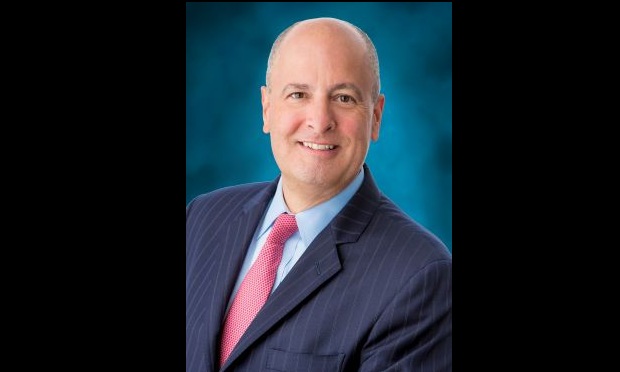NU Online News Service, Aug. 18, 2:49 p.m. EDT
SEATTLE–Regulators adopted a medical loss ratio form that leans more toward a narrow medical loss ratio (MLR) definition opposed by the industry, but the discussion revealed sharply divided opinions on the federal reforms.
During Tuesday's joint Executive Committee/Plenary meeting of the National Association of Insurance Commissioners (NAIC) in Seattle, the members adopted the medical loss ratio blanks, the form health care insurers will use to report how much premium paid to them is going toward health care expense and how much to administrative costs.
Under the federal Patient Protection and Affordable Care Act, 80 percent of premiums health insurers collect must go to health care and 20 percent to administrative costs. For larger companies, the split is 85/15 percent.
Agent and industry groups argued for a broader definition of "medical loss," arguing that a narrow definition could adversely impact spending on such important health plan activities as case management, wellness, disease management, and fraud and abuse prevention programs.
Consumer groups argued that a broad definition would go against the intent of the health care law, and Sen. Jay Rockefeller, D-W.Va., had even threatened to revive the fight for a public option if the MLR was "watered down."
Under the form passed unanimously by the NAIC with one abstention (Pennsylvania Commissioner Joel Ario cited a conflict of interest because he will be taking a job at Health and Human Services), insurers will have to report spending on categories such as "expenses for health improvements other than health information technology," "health information technology expenses related to health improvement," and "deductible fraud and abuse detection recovery expenses" for individual business, small group business, large group business, government business, "other health business" and other business excluded by statute.
Health Care for America Now (HCAN), a group that wants regulators to make the minimum MLR requirements as tight as possible, called the adoption of the blanks proposal "a step toward ending the health insurance companies' stranglehold on our health care."
HCAN Executive Director Ethan Rome said in a statement, "The top state insurance regulators from across the nation voted to put patient care above insurance company profits."
America's Health Insurance Plans (AHIP), meanwhile, praised the openness of the process at the NAIC but expressed concerns about the blanks.
The version approved today "could have the unintended consequence of turning back the clock on efforts to improve patient safety, enhance the quality of care and fight fraud," AHIP President Karen Ignagni said in a statement.
AHIP sent a letter to the NAIC contending that regulators should let insurers include fraud prevention and detection expenses, utilization review costs, individual policy wellness expenses and other expenses in MLR calculations.
HEALTH CARE REFORM DEBATED
With adoption of the form, it now goes to the Department of Health and Human Services for review and approval.
However, comments made during the NAIC meeting produced two sharply differing views among the regulators over the future benefit of health care reform to consumers.
Connecticut Commissioner Thomas R. Sullivan was highly critical of the potential benefits of the federal act, despite voting for the MLR form. He said while there was a promise from the president that consumers can keep the health care plan they have if they like it and that the program would save money, he believes this is far from the truth.
He said that based on figures from the General Accounting Office, instead of saving money the program would produce unfunded liabilities in the future. Consumers will lose their ability to choose their health care program as the competitiveness of the health care market erodes. He cited Connecticut as the example of a state with a healthy insurance market where one small insurer in the state would lose its ability to compete.
He said he fears the "intrusive arm of government" and that the law would not provide the relief from escalating health care costs the public faces. Those costs cannot be managed until the inflation connected with health care itself is addressed, he said.
Illinois Insurance Director Michael T. McRaith, on the other hand, said his state does not have a competitive health care insurance marketplace and he welcomed the federal act.
"We are grateful in Illinois" for creation of the act, he said.
He told a story illustrating the unfair practices of health care insurers, concerning a woman who was denied benefits under her plan for help with dealing with the death of a loved one because she sought grief counseling at her church.
"In Illinois, even grief is a preexisting condition," he said.
He was critical of health care insurers' practice of denying benefits to consumers in his state and the inability of consumers to combat the situation.
In making their insurance purchasing choices, consumers have the option of choosing the car and home they want to insure, and who to insure it with, "but you cannot choose to have cancer," he remarked.
Related to health care issues, Maine Superintendent of Insurance Mila Kofman introduced a resolution, co-sponsored by Florida Insurance Commissioner Kevin McCarty and approved by the executive committee, recognizing the invaluable role agents and brokers play in the service of health care insurance to both individuals and small businesses.
Commenting on the MLR form, Nicole Allen, senior vice president of Strategic Resources for the Council of Insurance Agents and Brokers (CIAB), said, "I think [the NAIC] did go more narrow on some of the definitions than we wanted."
But she praised the NAIC for recognizing the role agents and brokers will play in the health care exchanges once they are set up. She said agents and brokers play an important role guiding individuals and small businesses and helping them find products that suit their needs.
Allison Bell and Phil Gusman contributed to this article
Want to continue reading?
Become a Free PropertyCasualty360 Digital Reader
Your access to unlimited PropertyCasualty360 content isn’t changing.
Once you are an ALM digital member, you’ll receive:
- Breaking insurance news and analysis, on-site and via our newsletters and custom alerts
- Weekly Insurance Speak podcast featuring exclusive interviews with industry leaders
- Educational webcasts, white papers, and ebooks from industry thought leaders
- Critical converage of the employee benefits and financial advisory markets on our other ALM sites, BenefitsPRO and ThinkAdvisor
Already have an account? Sign In Now
© 2025 ALM Global, LLC, All Rights Reserved. Request academic re-use from www.copyright.com. All other uses, submit a request to [email protected]. For more information visit Asset & Logo Licensing.








